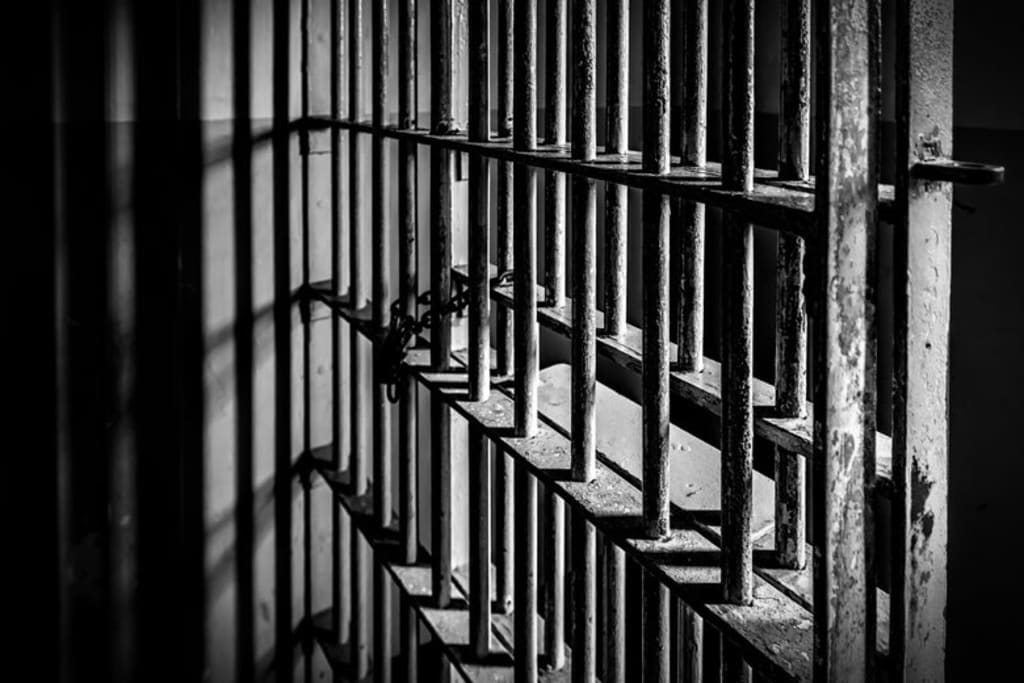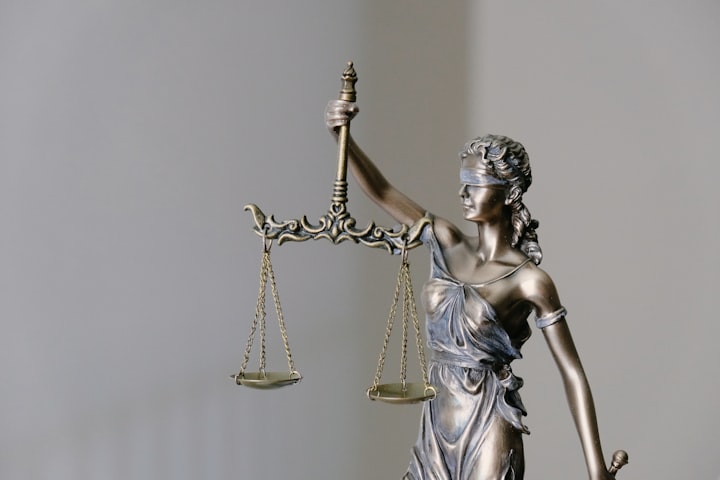
Being deprived of freedom and under 24 hour surveillance while surrounded by potentially hostile strangers is no joke. Incarceration is a traumatic experience, period; doubly so if one is lacking any outside support. I do not believe any human being, remaining in a state of hyper-vigilance, is truly able to stay healthy and safe in a facility that reeks of human distress and misery. I do not believe corrections and medical staff are able to stay healthy, sane and safe in carceral settings, let alone the people detained within.
Jails, detention facilities and prisons are not good for anyone and do not solve the social, economic and psychological issues which may lead to incarceration, but contribute to conditions of inequity, especially for the Black, Brown, poor and sick. I am a prison abolitionist, and long for a society where disposal is not viewed as a solution to human behavior.
Until the day we are free of jails and prisons, however, we need to find ways to get through them. Due to a lack of internet access within carceral facilities, this guide will likely only be accessible to those on the outside. If someone you know has been arrested, or you believe you will likely experience an arrest, this may be a helpful read.
I have been arrested twice, remaining in jail for nearly two months the first time (2013) and nearly one month the second time (2020). Both of my arrests were due to criminal(ized) behaviors occurring during mental health crises. I am also a white presenting, transgender person assigned female at birth. I acknowledge the ways I am advantaged and disadvantaged in carceral facilities and that my experiences may not translate directly to those of others.
Arrest and Booking - Have a Nice Flight
If you are under arrest the golden rule is to remain silent and ask for an attorney immediately. The police are there to sniff out incriminating evidence, including statements and actions made by you. A former police officer and current private investigator stressed this to me: do not talk to the police! They may or may not read your Miranda Rights. Ask if you are being detained or if you are under arrest. If you are, ask for an attorney immediately.
Few have the opportunity to prepare for an arrest, outside of those turning themselves in or participating in protest actions and civil disobedience. There are many things I would have liked to have on hand for my arrests - my phone, phone numbers, prescription medications, money for commissary, money for bail, etc. An inmate rights attorney advised me that people really need to have their shit together going into jail, but of course, no one actually does.
An arresting officer once told me that corrections officers and booking staff are “like flight attendants” and you need to treat them well to "have a nice flight." I did not take him seriously, but the truth is corrections staff have complete power over you and your experience inside. They may have all that power, but it’s still their job to look inside butts all day. That is to say it is generally a thankless, high stress job and some corrections officers seem to take pleasure in the human suffering they partake in - the Zimbardo’s Lucifer Effect in action, I suppose.
I have been in states of mental crisis and deprived of sleep for both of my arrests and generally was not aware of the gravity of the situation I was in until a week into my internment each time. The questions asked during booking intake can make an impact on your stay. If you vaguely insinuate that you have had suicidal tendencies you may find yourself stripped naked, covered in a horse blanket and on involuntary suicide watch in moments.
The questions themselves are invasive and distressing, but answering accurately about my status as a survivor of sexual violence and my mental health diagnoses might have spared me some of the harassment and negligence I experienced inside. That being said, when I tried to explain that I had an active prescription for my hormone replacement therapy, but that it had not been filled at a pharmacy yet, I was told that I had no prescription. It took weeks - which felt like eons - of filing grievances and pleading with staff to obtain the hormones I have been taking for 5 years.
If you have valuables with you, demand that they are documented and stored at booking. I have had corrections staff take cash out of my wallet when no inventory was taken. They will steal. If you are given a jail handbook, hang on to it. I made the mistake of ripping mine to shreds in a manic fit of resistance after a few sleepless nights in booking. This coupled with my being kept in isolation from other inmates set me back for weeks in taking the steps that would help me get in contact with the outside. The handbook can help advise you on filing grievances and staying aware of policies and procedures while in the facility, more details on this below.
In my experience the legendary “one free phone call” has not existed or ever been offered. Not much is free in jail, besides suffering.
Making Contact: You Cannot Get Through This Alone!
You will need outside help while inside, there is simply no way around it - whether that is friends, advocacy groups, family or an attorney - you need to make contact. I have tried to bail myself out of jail while inside and it was essentially impossible as I could not prove that I had collateral. Having folks checking on you from outside will give you a glimmer of hope and show corrections staff that you are not a forgotten person susceptible to their abuse. Spending days and weeks isolated from caring human contact is brutal. We are social creatures.
Although I have experienced varying degrees of camaraderie among inmates, however, moods and politics change rapidly inside. If you rock the existing hierarchy on your cell block - you can find yourself going from having friends to facing an assault. It is easy to say this, but it isn’t worth taking jail drama personally. Treat human beings like animals and they will act accordingly. Some people turn to violence to regain a sense of control or to distract from the misery of incarceration. It is in your best interest to avoid fighting when possible - you could incur additional charges or be represented as “increasingly violent” by the prosecution.
Swallow your pride, keep your head down and make some calls. Phone calls are not free, so you may be trading food items with others to make calls until you can get someone to put money on your phone account. You might receive a few free stamped envelopes on arrival, but if not you will need to trade or buy some. No one remembers phone numbers and addresses anymore either! If you have one or two contacts memorized go for those and see if your main emergency contacts can help alert other members of your community for support, specifically if anyone is able to help raise bail.
Bail is set according to the charges you are facing and the determination of your risk to society. Although many courts have a “release on own recognizance” alternative to bail, I have yet to experience a release without bail. Ask your community to help fundraise for you or search if there are bail funds available at local, grassroots organizations in your area.
Aside from bail, ask who in your community is available to write you letters, visit, take calls, send books, donate commissary and phone funds, and otherwise help you remain in connection with the outside world. You may also need help to ensure you do not lose your employment, housing or personal property while you are inside. Ask if someone can contact your employer. Can someone check if your vehicle was impounded? Can someone pick up and store your property before your landlord dumps it on the street? Do you have pets or plants? Do you have bills or loans or subscription services? Do you have any money stashed somewhere that might help you out right now?
You may even need to consider if someone in your community is able to take on power of attorney on your behalf depending on the assistance needed. You may be able to get help and the required forms for this at your jail’s law library or from an attorney.
Survival Self Care and Jail Medicine
If medical staff think you’re trash, they will treat you as such. During my last arrest I was covered with poison oak rash and had a few open cuts and sores that would not heal or close. I begged medical staff for treatment repeatedly - but was ignored since I did not know the protocol of writing “sick slips.” As such I had to practice some field medicine - I was able to cure and dry out my wounds by filling them with powdered drink mix and wrapping them with toilet paper bandages. I also dabbed toothpaste on my poison oak sores to help soothe them.
Your jail may be in a first world country, but you will not have first world access to care or supplies. You won’t be allowed to have standard dental floss. You may try ripping threads out of your uniform. If you have access to tampons, there may be a thin plastic strip in the tampon packaging you can use as floss. Commissaries may have rubber “safety floss” bands available.
Dietary restrictions or allergies may not be considered without a medical note or proof of religious affiliation. You can safely assume almost everything has gluten or soy in it, including the “meat.” Jails are geared to feeding people on the cheap, and some serve only one hot meal a day, not “three hots and a cot.” Cold bag meals often consist of bread, peanut butter or cold cuts, boiled eggs, etc. Commissaries may have some alternative options, but most commissary food is actual junk - sugary treats, chips, sodas, maybe packets of tuna, chicken, nuts and trail mix if you’re lucky.
You will not be able to control the hygiene of other inmates in your dorm if you are in general population, but you will be able to control your own. When I was last in jail, inmates were not being given masks because the bendable metal clip over those could be used as a weapon. I made my own mask out of a torn up pair of boxers. This was later confiscated by corrections staff. If cleaning supplies are available, wipe down sinks and toilets as often as possible and don’t share eating utensils or cups.
Being in jail propels the body and mind into a state of crisis which can be extremely taxing on mental health. You will not have any privacy between surveillance and the presence of other inmates. Other inmates may stay up late talking, shouting or watching TV making sleep impossible - along with the 24 hour lighting. If you need help managing anxiety, depression or sleeplessness ask to meet with a mental health professional in the jail. Remaining emotionally well is crucial to survival within facilities. Feelings of isolation and suicidal thoughts increase inside of jails and prisons. Some facilities do charge inmates for medication, some do not or make exceptions for indigent inmates.
Grievances Upon Grievances
As previously mentioned you may need to file grievances documenting complaints and concerns. The facility that you are in will have its own procedures around responding to grievances. Many grievances may not be taken seriously or responded to appropriately. Do not despair, grievances can matter if you are experiencing abuse and discrimination within a jail or prison. If down the road you are interested in pursuing a lawsuit against the facility, you will need to provide documentation of the grievances you have filed and evidence that you have exhausted the bureaucratic responses to your complaints.
If you are experiencing harm or abuse in a facility it may be helpful to find a copy of the National Lawyers Guild Jailhouse Lawyer’s Handbook and for cases of sexual violence, the Just Detention International Handbook - Hope Behind Bars. These publications are available to be sent free of charge to inmates and .PDF files are free for download online.
Be sure to tell your community on the outside or your attorney if you are experiencing abuse or negligence. Having people able to help advocate for you, raise awareness and reach out to organizations like the ACLU, NCLR, JDI or your local sexual violence centers may be able to help you access some much needed support.
After Jail Care
I have been released from jail by pleading no contest to charges and by being bailed out. As such I cannot speak to the experience of remaining in jail until trial or going from jail to prison custody. As of this writing, if I had not been bailed out I would still be in county jail from a summer 2020 arrest and my heart goes out to all of those awaiting trial in jails, especially during a pandemic.
Whether it is clear or not, experiencing incarceration is a trauma and trauma affects everyone differently. Immediately after jail you will likely need to do some degree of repair work in your life and your relationships - picking up the pieces, recovering belongings, seeking resources and stability. You may be starting from zero - and needing to find housing and income. There are local and national organizations out there offering assistance and microgrants to those reentering society after jail or prison. TransLifeline offers limited amount of reentry microgrants to transgender re-entrants (they now offer commissary microgrants too!). Your community may be able to help you fundraise for assistance as well.
Even though you may be in a mad rush to get your life back together - try to take things slowly. You may need lots of alone time after leaving a crowded cell. Take walks, feel the breeze and sun on your skin and the Earth under your feet. I found spending time in nature extremely therapeutic after the deprivation of jail. Be sure to get plenty of rest, stay hydrated, breathe, and eat the nourishing foods that you have been missing!
Despite the isolating and destabilizing experience of incarceration, remember that you are not alone. In the United States millions of people are incarcerated or under some form of carceral surveillance. Find others who have gone through it and reach out, talk, build connections and remember and reach out to those inside.
Also, be proud that you have survived and that you have the opportunity to keep living and growing. Remember that in this society our freedom is tenuous and illusory. You know this now more than ever and you will carry your experiences and wisdom with you going forward, along with the pain.
About the Creator
Isyan
lifelong writer and artist emerging from my lair






Comments
There are no comments for this story
Be the first to respond and start the conversation.